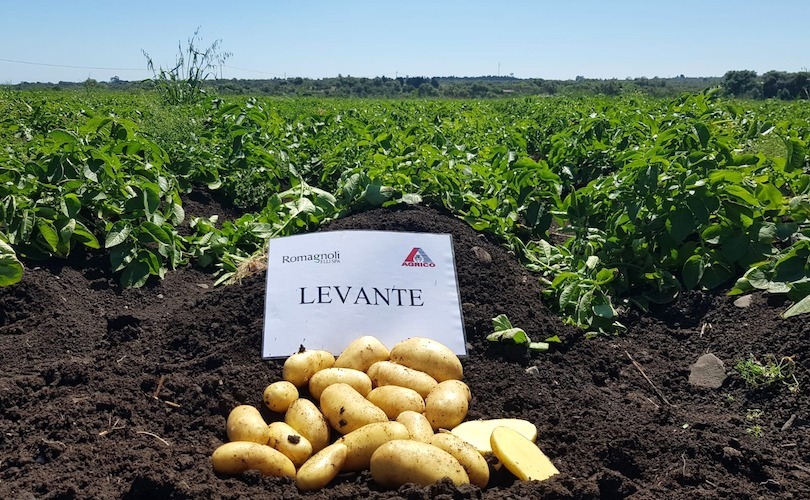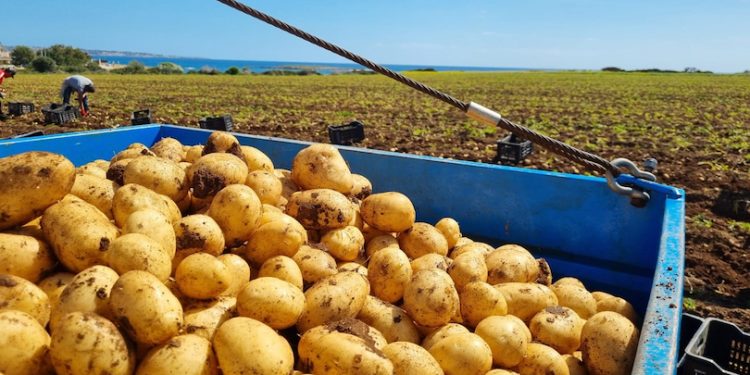Innovative Practices and High Quality Drive Market Success
The Sicilian new potatoes market has shown significant growth in 2024, achieving higher market share and yields, according to reports by industry experts. The mild autumn-winter climate has contributed to an optimal level of tuber maturation, resulting in high-quality produce that is fully peeled with excellent shelf-life.
Market Performance and Consumer Response
Roberto Chiesa, Commercial Director of Romagnoli F.lli, highlighted the market’s positive reception of Sicilian new potatoes. “The market, and therefore the consumer, has shown great appreciation for Sicilian new potatoes. The 2024 campaign is characterized by a high level of quality, thanks to the mild climate during the autumn-winter season. This allowed us to offer a high-quality product with excellent shelf-life,” Chiesa told myfruit.it.
The market has consistently absorbed the available produce, with prices remaining stable and satisfactory for producers. This stability has enabled a balanced price positioning for consumers. Despite an increase in cultivated area in 2024 (+10% compared to 2023), it is anticipated that the harvest will conclude by the end of May, 10-15 days earlier than usual. While the mild climate has favored product quality, prolonged periods of drought have negatively impacted yields, aligning them with 2023 levels, which are approximately 10-15% below the area’s average.
Innovative and Sustainable Practices
Romagnoli F.lli, a leading Italian company in the horticultural sector, markets over 60,000 tons of potatoes annually. Their diverse and innovative product range includes seed potatoes, consumption potatoes, organic farming products, and IV and V range processed products. Their product lineup is complemented by fresh onions and other horticultural products.
Giulio Romagnoli, CEO, emphasized the importance of aligning innovation with consumer expectations: “In a scenario of generalized consumption decline, the challenge is to convey to consumers the varietal innovation and research processes that occur during production planning. This is crucial to meet their expectations of quality and taste,” Romagnoli commented.
A New Agro-Food Culture
Romagnoli advocates for an agro-food culture founded on varietal innovation, quality, and transparent communication at points of sale. He noted the ongoing issue of significant omissions regarding traceability, origin, and variety in product assortments, which leads to consumer misinformation and ultimately harms the sector.
The company has been pursuing sustainability for years, adopting the ESG (Environmental, Social, and Governance) rating as an essential measurement tool for their environmental, social, and economic sustainability choices. Romagnoli emphasized the need for the entire supply chain to adopt this standard, traditionally required only by large listed groups, as a criterion for selecting partners and suppliers in the retail sector and, by extension, the market.
Towards a Sustainable Future
Romagnoli concludes, “The common goal of the supply chain should be to implement this standard, ensuring a sustainable future for the agro-food sector. A cultural shift is inevitable to secure the industry’s future.”








